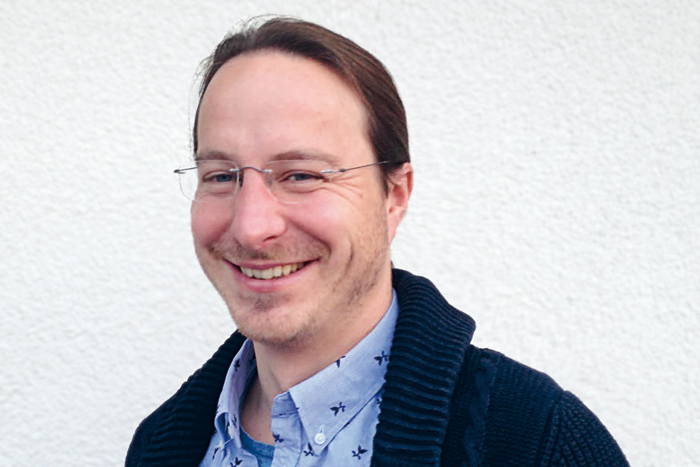New Tools, Big Effect

Prof. Dr. Henning Jessen Credit: private
Prof. Dr. Henning Jessen has received 1,050,000 US Dollars in funding from the International Human Frontier Science Program Organization (HFSPO) for a project that combines methods from synthetic organic chemistry, technologies for releasing active substances, and approaches from cell and animal biology with the goal of developing effective tools for understanding the biopolymer polyphosphate (polyP).
The Freiburg chemist will coordinate an international research group including scientists from Stanford University, USA, and the Center for DNA Fingerprinting and Diagnostics in Hyderabad, India. The team will spend the next three years attempting to decipher the mechanisms of polyP in mammals. Special emphasis will be placed on elucidating the function of polyP in blood clotting. The findings could also enable the development of novel antibiotics.
The biopolymer polyP is a chemical substance consisting of a long chain of phosphate groups that serves important functions: In bacteria, for instance, it is involved in stress response, biofilm formation, and antibiotic resistance. It could very well also be responsible for critical processes in mammals.
Studies suggest that it plays a role in blood clotting and in the transmission of neuronal signals. Researchers still lack significant information to confirm these functions, however, because the enzyme that synthesizes polyP in human cells has not yet been identified. Moreover, it is not known how it is transported in cells.
In cooperation with Prof. Dr. Paul Wender from the USA and Dr. Rashna Bhandari from India, Jessen aims to develop new technologies for making, modifying, analyzing, and transporting polyP – first in a test tube and later in living cells. In this way, the team hopes to make a fundamental contribution to further research on the biopolymer in mammals.
The international organization HFSPO funds international cooperation and novel research approaches. Jessen’s team prevailed against more than 800 proposals submitted by applicants from 64 countries. He serves as professor of bioorganic chemistry at the University of Freiburg. His research interests revolve around the chemistry of biologically important phosphates, especially the function of special highly phosphorylated cellular signaling molecules.
Henning Jessen’s research group at the University of Freiburg
http://www.jessen-lab.uni-freiburg.de
Contact:
Prof. Dr. Henning Jessen
Institute of Organic Chemistry
University of Freiburg
Phone: +49 (0)761/203-6073
E-Mail: henning.jessen@oc.uni-freiburg.de
http://www.pr.uni-freiburg.de/pm-en/personalia-en/jessen-biopolymer
Media Contact
All latest news from the category: Awards Funding
Newest articles

Innovative 3D printed scaffolds offer new hope for bone healing
Researchers at the Institute for Bioengineering of Catalonia have developed novel 3D printed PLA-CaP scaffolds that promote blood vessel formation, ensuring better healing and regeneration of bone tissue. Bone is…

The surprising role of gut infection in Alzheimer’s disease
ASU- and Banner Alzheimer’s Institute-led study implicates link between a common virus and the disease, which travels from the gut to the brain and may be a target for antiviral…

Molecular gardening: New enzymes discovered for protein modification pruning
How deubiquitinases USP53 and USP54 cleave long polyubiquitin chains and how the former is linked to liver disease in children. Deubiquitinases (DUBs) are enzymes used by cells to trim protein…



